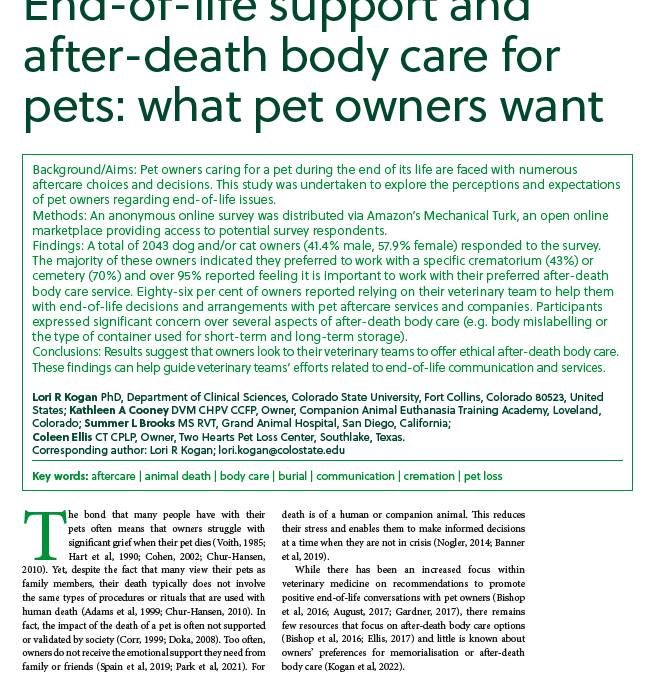The bond that many people have with their pets often means that owners struggle with significant grief when their pet dies (Voith, 1985; Hart et al, 1990; Cohen, 2002; Chur-Hansen, 2010). Yet, despite the fact that many view their pets as family members, their death typically does not involve the same types of procedures or rituals that are used with human death (Adams et al, 1999; Chur-Hansen, 2010). In fact, the impact of the death of a pet is often not supported or validated by society (Corr, 1999; Doka, 2008). Too often, owners do not receive the emotional support they need from family or friends (Spain et al, 2019; Park et al, 2021). For these reasons, it is vital that veterinary professionals know how best to support pet owners during their time of loss (Adams et al, 2000). This support involves helping owners with end-of-life decisions and care (Fernandez-Mehler et al,2013). Pre-planning can help ensure people have a voice in the end-of-life decisions of their loved ones, whether the death is of a human or companion animal. This reduces their stress and enables them to make informed decisions at a time when they are not in crisis (Nogler, 2014; Banner et al, 2019).

